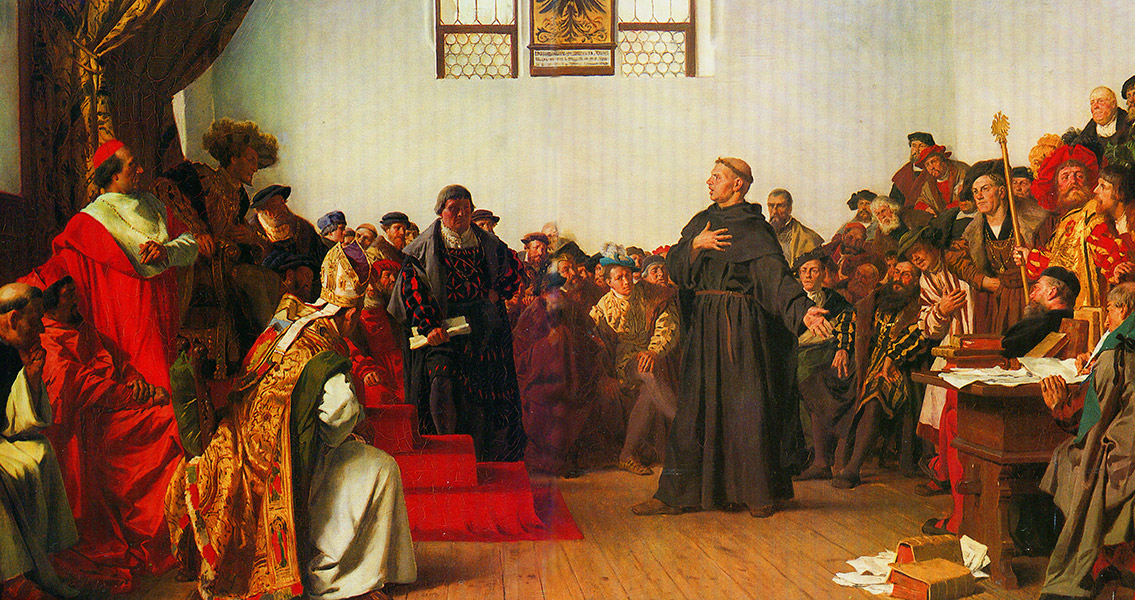<![CDATA[The Diet of Worms drew to a close on 25th May, 1521. The meeting was significant for one major reason, one of its key outcomes was the official excommunication of Martin Luther for heresy following the issuing of the Edict of Worms. A formal, deliberative assembly of the Holy Roman Empire, the Diet of Worms saw princes and officials from across Europe convene in the German city of Worms to deal with the Protestant Reformation sweeping through Europe. At a time when religion and politics were barely separated, the doctrines of Martin Luther were bringing into question the very basis of power; threatening to trigger drastic upheavals. Unsurprisingly, Luther himself was the focus of the Diet. The Pope called the rebellious monk and author to attend the conference in person, to debate his ideas and answer the charges of heresy against him. Perhaps highlighting just how inextricably linked church and state were in sixteenth century Europe, Luther had in fact been called to answer to political authorities, rather than the Church. Born in Saxony, Germany, in 1483, Luther came from a family with a peasant background, although his father was a successful miner; affording his family a comfortable life. Following his graduation, Luther seemed destined for a career as a lawyer until supposedly a religious experience in a fierce storm pushed him to join a monastery. Relentlessly pursuing enlightenment, Luther devoted himself to studying the scriptures, becoming a highly respected theologian. Throughout his studies however, Luther could not shake a lingering dissatisfaction he felt towards the institution of the Catholic church. Eventually he pinpointed the source of his frustration, deciding that salvation was found in faith alone rather than a fear of god or devotion to dogma. Luther's ideas brought into question the practice of indulgences, one of the primary incomes for the Church in Europe. When the Pope announced a new wave of fund raising in 1517, Luther responded by nailing his 95 Theses on the door of the Castle Church in Wittenberg. The printing press gave Luther's critique distribution, and a hugely divisive attack on the Catholic church was shared throughout the continent, creating a theological, political and social crisis. Pope Leo X condemned Luther's propositions in June 1520, and gave the monk until January the following year to recant. As is well known, Luther stuck to his ideas and was excommunicated on 3rd January, 1521. Holy Roman Emperor Charles V, under pressure from the Pope, convened the Diet of Worms later in January and summoned Luther to attend and defend his actions, guaranteeing the monk safe passage to the Diet. Luther arrived at the Diet in late April, and steadfastly refused to recant yet again, sticking to his position. The Diet issued the Edict of Worms in early May, excommunicating Luther and banning all of his writings. As the Diet came to an end on the 25th May, Luther found himself a wanted man across Europe. Nevertheless, several powerful German princes actually supported the outlaw, perhaps viewing Lutheranism as a means to counter the influence of the Vatican in political affairs. They sheltered the rebellious monk, fostering the spread of the Protestant Revolution. ]]>
The Diet of Worms Leaves Luther a Wanted Man
